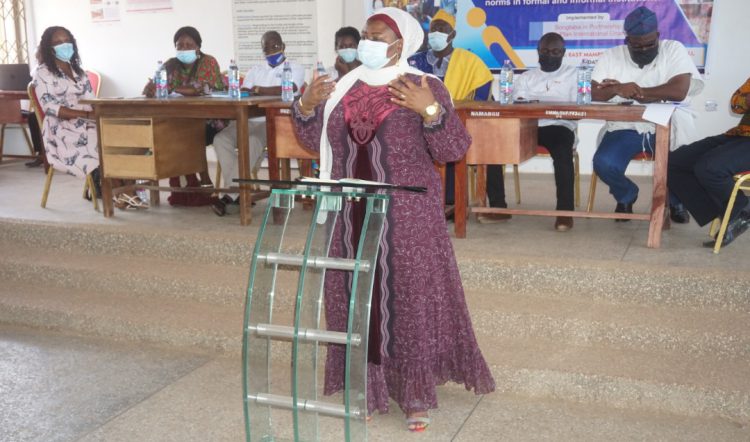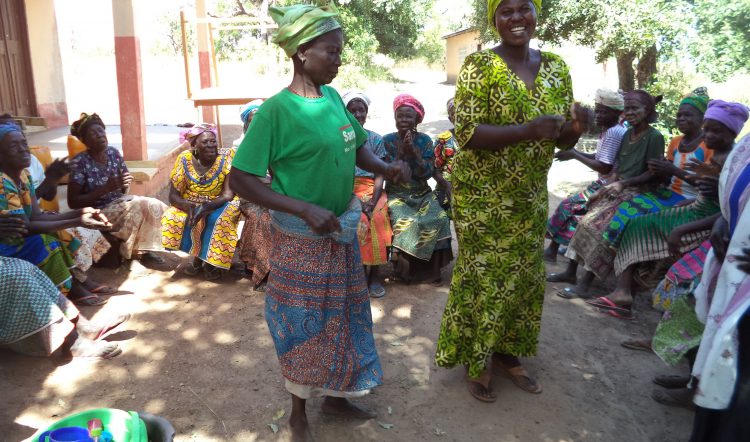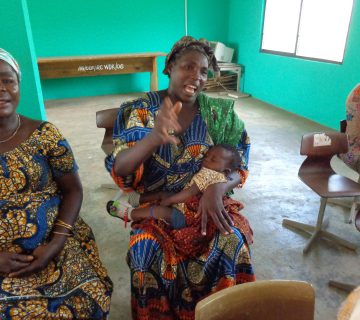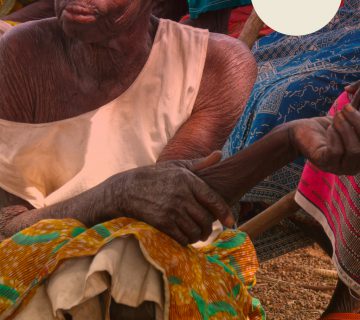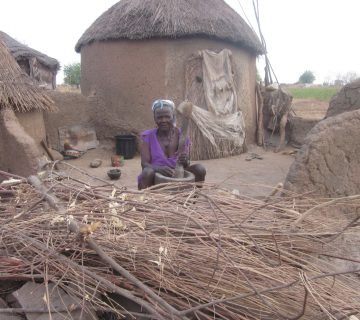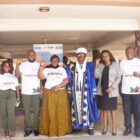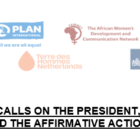SONGTABA HEALTH PROGRAMME
Health is a major human rights issue as captured in the United Nations Sustainable development goals (SDGs 3 good health and wellbeing). As a women and children rights organization, it is important to design programmes and projects that that will help address some of the challenges that our constituents are faced with. Songtaba under the health programme operates a comprehensive health programme with two target groups including women and girls. One of the programme is focused on comprehensive sexual education with young people and the other on nutrition and improved living
OUR WORK ON SEXUAL AND REPRODUCTIVE HEALTH RIGHTS
Songtaba Sexual and Reproductive Health Rights Programme has an objective of supporting right holder groups like girls and other vulnerable groups like persons with disabilities, young women, and women in their reproductive ages to identify, educate and mitigate sexual health issues in the areas of sexual rights, sexual abuse, teenage and unwanted pregnancy, sexually transmitted infections (STI’s).
By a strategy of using community-led volunteers and mother to mother support groups through REFLECT as advocates, Songtaba works in communities and schools to promote sexual education and facilitating access to health care and services such as improving and nurturing conducive and enabling environment and safety on sexual practices through informed practices like prevention of pregnancies and seeking early treatment of STIs and other related sexual health issues including unsafe abortions
STOP VIOLENCE AGAINST GIRLS IN SCHOOL (SVAGS)PROJECT
Under our partnership with ActionAid Ghana, Ghana National Education Campaign Coalition (GNECC), and with funding from the Big Lottery Fund. U.k. Songtaba implemented a five-year project on Building the capacity of girls in school to make informed choices about their bodies and challenge any form of violence to be able to stay and complete their education. This project spanned from August 2008 to June, 2013. It was implemented concurrently in Ghana, Kenya and Mozambique under the auspices of ActionAid international. In Ghana, it was implemented in two districts in the Nanumba North and South districts in the Northern region where Songtaba was the community implementer to feed advocacy issues to GNECC at the national level.
Overall, the SVAGS project was implemented in 13 communities where it worked closely with girls and their clubs, the Community Advocacy Teams, teachers, school management committees, PTAs, and the traditional and religious bodies. It had a comprehensive strategy to fights sexual abuse and other forms of violence that deny girls from staying and completing school. The strategy was to work in two folds: one in school where girls and their club’s capacities were built in confidence-building activities, education on comprehensive sexual education, and their rights and responsibilities. Teacher mentors and the teachers were also trained on child rights issues and how to handle issues of sexual abuse and all other forms of violence. The girls in each school were supported by the mentors to develop and implement action points drawn from their regular meetings.
The second strategy was working with community-level volunteers on protecting the rights of girls and serving as a link to the district-level departments like CHRAJ, DOVVSU, and social welfare.
Project Outcomes
Outcome 1: In Ghana a legal and policy framework that specifically addresses VAGS exists and is being implemented at all levels (using the Model Policy as a reference).
Outcome 2: In the intervention areas, violence against girls by family members, teachers, and peers is reduced [by 50%] from baseline statistics. One of the intermediate determinants (outcomes) designed to for determining this was increased awareness about their sexuality, legislation, prevention, and reporting mechanisms
Outcome 3: In the intervention areas, girls’ enrolment is increased [by an average of 22%], their drop-out is decreased [by 20%] and substantial progress is made towards gender parity in education.
Outcome 4: In the intervention areas, [1,074] girls report the confidence to challenge the culture of violence in and around schools, report incidents, and create peer support networks
Achievement on this project.
Codes of conduct for teachers were review disseminated as well as other media briefing materials. Several media discussions were held on radio and the print as well as television to educate the public on the interventions and activities of the project.
with the several engagements of the district authorities’ on the gazetting of the bye-law, the district assembly finally ratified the bye-law by the end of May 2013
The project schools signed for committing to zero tolerance to all forms of sexual violence and corporal punishment in the schools. Positive discipline approach was also adopted
There was an appreciable increase in enrollment in year 4 in relation to the set target. Girls’ enrollment has risen steadily from 2346 to 2533 to 2816 from project years one, two, and three respectively, this achievement level constitutes 90% of Ghana’s target of 22% increase in girls’ enrollment over the span of the project. Several activities and efforts have been put in place to achieve this outcome at this level. some of it has to be with the work with SMC and PTA in ensuring that, they produce and implement girl-friendly and gender-sensitive school plans. Parents have been sensitized and there have been tremendous efforts by CAT and PPEs in engaging parents on the need to send their girls to school.
· For the five years span, 2521 girl’s capacities were built. The girls themselves developed the girl’s charter and it has since been adopted by the district education. 650 parents directly benefited.
There was also increased participation of girls in reporting cases of VAG through the official channels as violent boxes were placed at vantage points to enable girls to freely report any form of abuse suffered or feared.
As the girls channeled their energies in building support groups, they build their skills in bead making
2.0 COMPLIMENTARY HEALTH PROMOTION
2.1 VULNERABLE WOMEN AND THEIR BODIES
For the past ten years, Songtaba has worked closely with the district health directorate of four districts (Yendi, Gushegu, Nanumba South, and East Mamprugu districts) where the five alleged witch camps are located to provide periodic health screening exercise for the vulnerable women at the camp to improve on the health conditions of these women most of whom are aged 65 years and beyond. Similarly, progress has been made on increasing access to clean water and sanitation, reducing malaria and other killer diseases.
Also, Songtaba and the Committee on reintegration and the alleged witches network leadership have worked with the regional directors of the Ghana Health Services under the counseling unit to hold counseling sessions with the inmates in the various camps as a step towards sustainable reintegration. This was done under the “Get your dignity back” campaign. The various districts where these camps are located are constantly engaged to include in their health talks the symptoms of menopause and high fever as well as other communicable diseases that has tendencies to be linked to witchcraft accusations like the sudden upsurge of CSM, Cholera, and others and to provide counseling services to inmates in the camps each time they are prepared to go home as part of the reintegration strategy. The regional health directorate has committed to mainstreamed issues of witchcraft accusations as part of its outreach programmes in the region.
Under this programme, 640 women have benefited directly at the camps and 5680 community members from 20 feeder communities have been sensitized.
2.2 ALAAFE ZAHIMBU SOLI PROJECT
In 2016, Songtaba in partnership with the Humanist Service Corpse initiated the kukuo health project dubbed “Alaafe Zahimbu Soli” it was a project implemented in kukuo camp lead by Humanist Service Corpse Volunteer with approval from the regional and district health directorate to organize a health screening exercise to create a medical records database for all people residing in kukuo so that their health information is readily available to themselves and health care providers. Over two thousand residences of Kukuo community benefited from this exercise.
The project at the end of the six-month period collated common diseases that confront the community, held discussions with the Ghana health service, and a comprehensive education campaign was initiated. This included sanitation and hygiene issues, malaria, and hepatitis education. 6 people were found to have serious conditions and were quickly referred to Tamale Teaching Hospital. The project also led to the initiation of 5 community-owned volunteers to report early health signals to the assembly for early alert and action. All community members including, children, women, men have had updated records in three duplicates and it has been shared with the Kukuo CHIPS compound. About 2000 mosquito nets were also distributed as part of the educational campaign.
2.3 COMPREHENSIVE HEALTH PROMOTION
58 women smallholder farmer groups totaling about 1,856 to achieve food and nutrition security in 31 communities in Nanumba north and south districts under a project called women’s rights to sustainable livelihoods have benefited as part of the promotion to improve on their health and take action about their bodies and their children. Under this project women, smallholder farmers have received training on sustainable agricultural methods and comprehensive approaches on how to achieve nutrition security through the cultivation of local foods that are highly nutritious and good for human growth.
The objective of working with these categories of women was a part of the agenda to encourage the consumption of local foods fortified with the needed nutrients for the proper growth and development of mother and child, Songtaba sensitized 31 communities in Nanumba north and south on breastfeeding and complementary feeding and other local foods that are rich in nutrients for the proper growth of the child and mother. The discussions were done in an open forum and group level especially mother groups with the nutrition officers using samples to exhibit on local foods that are nutritious and how they each complement the other.
The activity created a shared understanding of the advantages of consuming local foods in the right proportion, for instance {what proportion of energy-giving food such as carbohydrate can complement with body building food such as protein and the amount of protective food such vitamins} can be made nutritious. The facilitation team did home visits to identify deficiency/malnutrition problems as well as encourage parents not to ignore signs of malnutrition.
OUTCOME
• New formula and practices were learned on how to make food nutritious and balanced in all 31 communities
• Commitment of nurses and nutrition officers to do home visits and follow-ups on cases were also achieved as 4 cases were identified and managed successfully. This led to the formation of mother-to-mother support groups in the communities to identify and give support to new situations and make referrals to the clinics.

